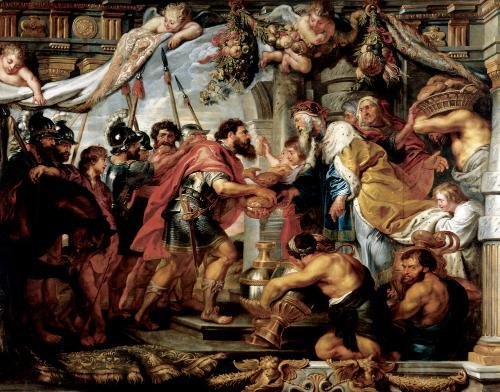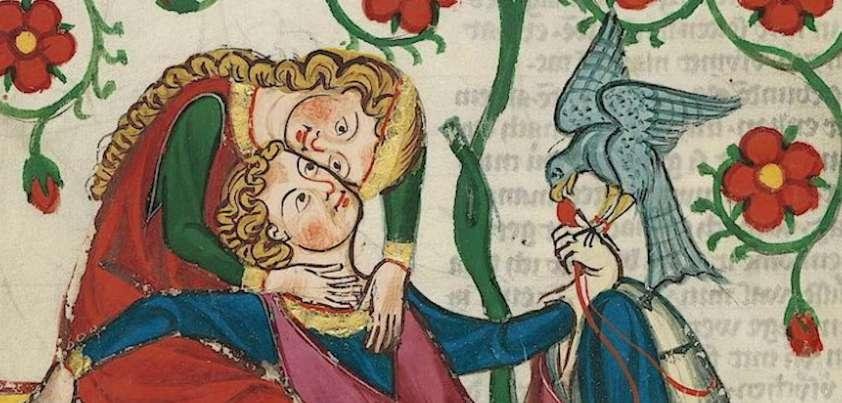A Parable of Power: Wisdom and Diplomacy in Boccaccio's "Melchizedek and Saladin"

Giovanni Boccaccio's Decameron, a vibrant tapestry of 100 novellas, offers a rich exploration of 14th-century life and human nature. Among its diverse tales, "Melchizedek and Saladin" (Day I, Novella 3) stands out as a concise yet powerful parable showcasing the power of wisdom, diplomacy, and strategic generosity in navigating conflict and adversity. This analysis will examine the narrative's key elements, including its characters, themes, and enduring relevance in contemporary society.
The story centers on Saladin, the powerful Sultan of Egypt, facing a severe financial crisis. Desperate for funds, he devises a cunning plan to extract money from Melchizedek, a wealthy Jewish merchant. Saladin proposes a seemingly simple question, which of the three Abrahamic faiths Judaism, Christianity, and Islam is the true religion? A wrong answer would result in Melchizedek’s death. However, Melchizedek cleverly avoids this trap by telling a parable of a father passing on three identical rings to his sons, each claiming their ring is the true heirloom. This leaves the sultan contemplating the irresolvable nature of the question and revealing his real predicament to Melchizedek. This clever response not only saves Melchizedek's life but also leads to the merchant generously lending Saladin the needed funds. The story highlights how the cleverness and mercy of the Jewish merchant, Melchizedek, saved him from certain death by Saladin, and his actions in return secure a mutually beneficial agreement between the two.
Boccaccio masterfully employs several literary devices to enhance the narrative's impact. The parable of the three rings serves as a powerful metaphor for the inherent ambiguity and subjectivity of religious truth. It underscores the limitations of imposing singular interpretations of faith and the potential dangers of religious intolerance. The story also cleverly subverts expectations. The narrative structure, beginning with a seemingly perilous situation, culminates in an unexpected resolution fueled by both wisdom and generosity. This subverted expectation is a hallmark of Boccaccio's storytelling style.
The characters of Melchizedek and Saladin are well developed, albeit in a limited space. Melchizedek's quick wit and intellectual agility are paramount to his survival. He embodies wisdom not only in his understanding of religious complexities but also in his shrewd assessment of Saladin's character and motivations. Saladin, despite his initial deception, displays a capacity for recognition of Melchizedek’s wisdom and a surprising openness to generosity. His transformation from a deceptive ruler to a grateful benefactor illustrates that even powerful figures can be swayed by intellectual acuity and humane actions.
The story's primary theme is the efficacy of intelligence and diplomacy over brute force. It suggests that understanding the complexities of human interaction and employing tactful communication can be more effective than violence or coercion. This theme resonates even today in resolving international conflicts and fostering intercultural understanding. The story also subtly touches on themes of tolerance and mutual respect between different religious communities and the importance of critical thinking in addressing complex questions of faith.
I found "Melchizedek and Saladin" to be a captivatingly concise and insightful story. The elegance of Melchizedek's response, its strategic implications, and the unexpected resolution create a narrative that is both intellectually stimulating and emotionally satisfying. The power of the parable of the three rings, effectively conveyed, makes this novella highly memorable and impactful. The story’s unexpected turn from a potentially violent encounter to a mutually beneficial agreement is what makes this such a compelling story.
"Melchizedek and Saladin" remains relevant today because it underscores the enduring importance of wisdom, diplomacy, and generosity in resolving conflicts. In a world often characterized by religious extremism and political tension, the story's message of tolerance, critical thinking, and strategic compassion continues to resonate. Melchizedek's ability to utilize his intelligence and his thoughtful response highlight the power of thoughtful communication in overcoming adversity, transcending religious differences, and creating mutually beneficial outcomes. The narrative serves as a timeless reminder of the strength of intellect and the transformative potential of thoughtful interaction.







